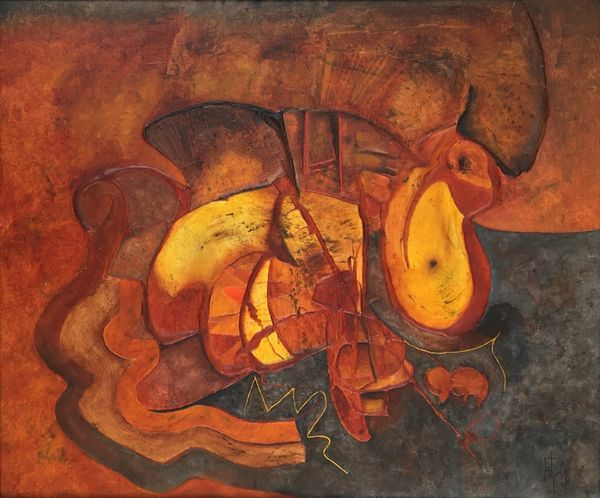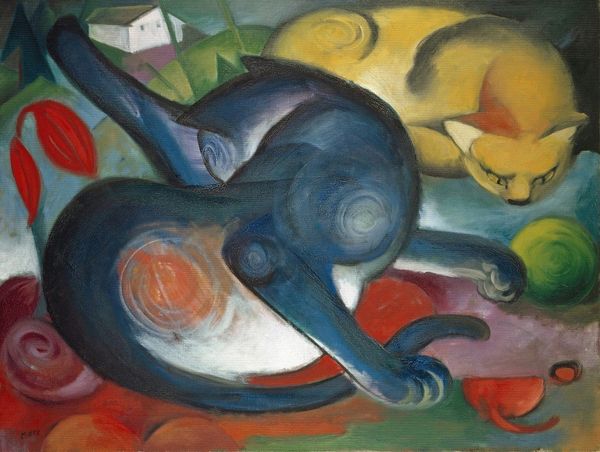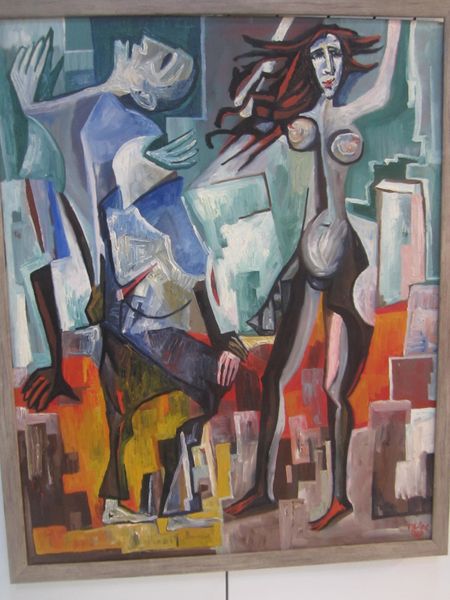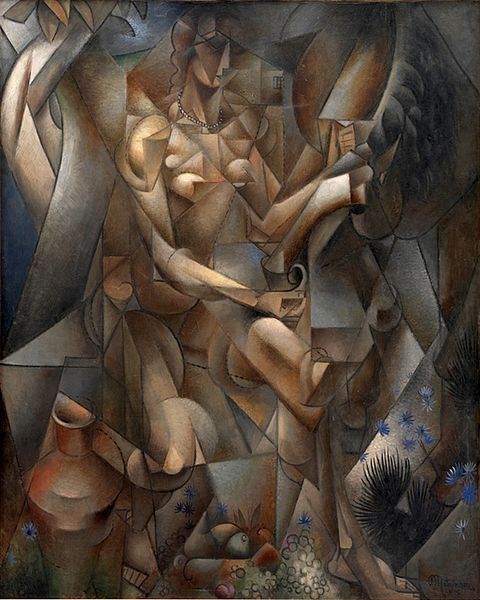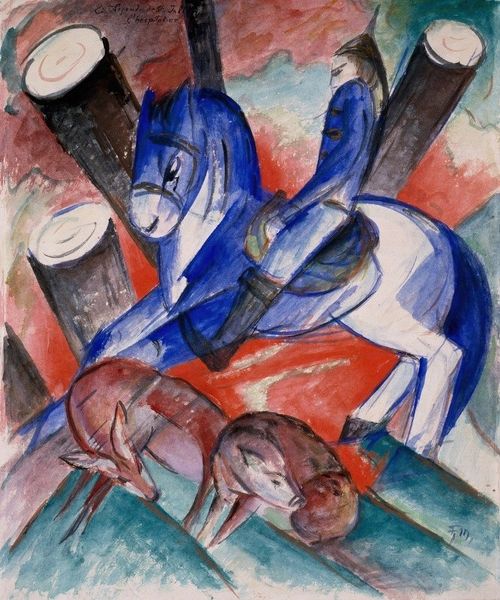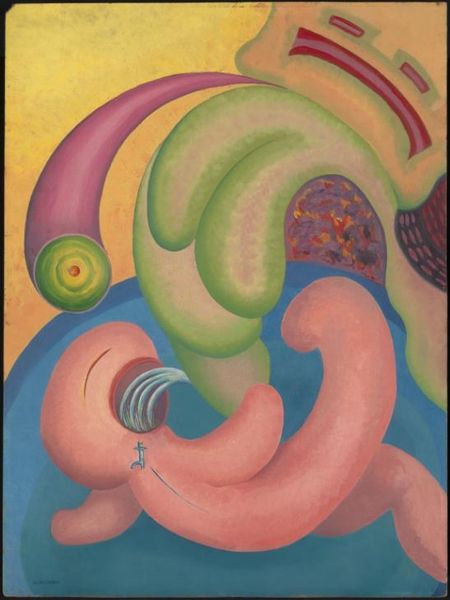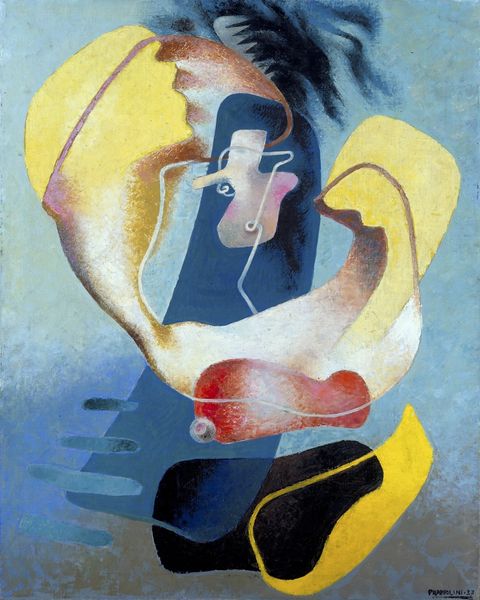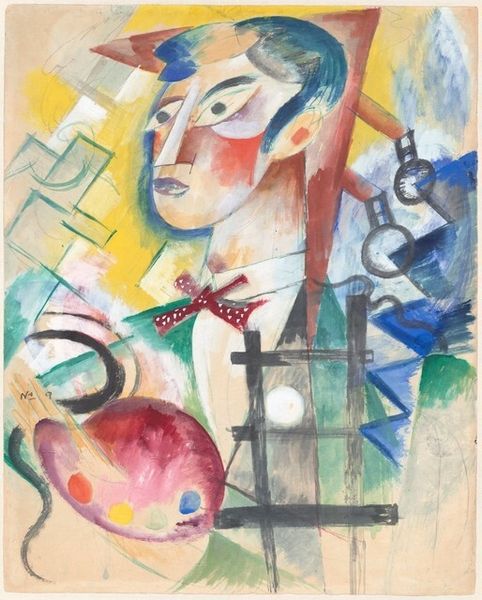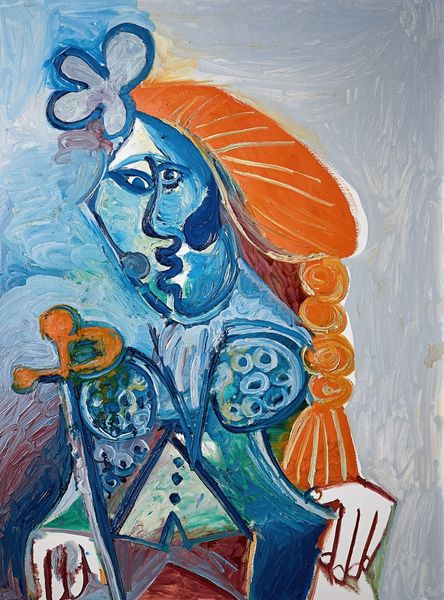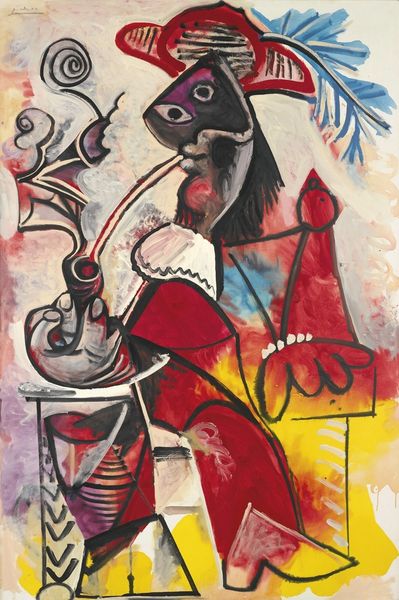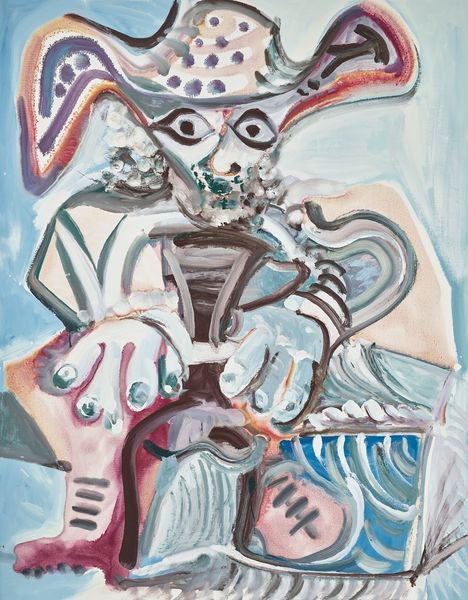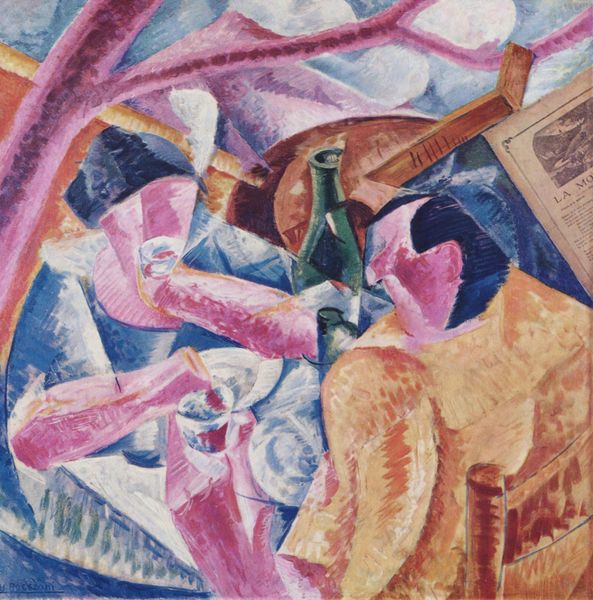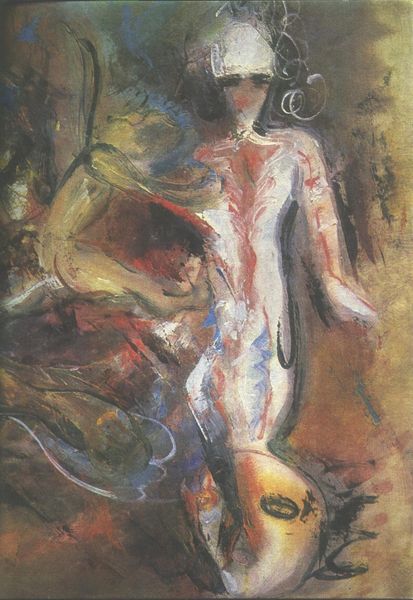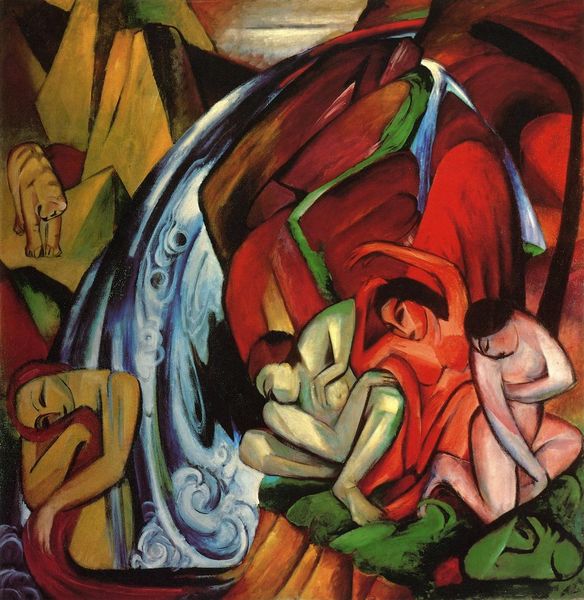
painting, oil-paint
portrait
abstract painting
painting
oil-paint
landscape
figuration
oil painting
neo expressionist
neo-expressionism
abstraction
modernism
Copyright: Yervand Kochar,Fair Use
Curator: Oh, my heart. It feels like a blue dream, doesn't it? A soft sorrow, almost. Editor: It certainly evokes a mood. What we're looking at here is Yervand Kochar's oil painting, "Ecstasy," created in 1960. It comes from a period of artistic ferment in the Soviet Union, a time of complex cultural negotiations. Curator: "Ecstasy," though... that title feels ironic to me. I see yearning more than bliss. Look at the face – downturned eyes, a certain weight. Even the colors, beautiful as they are, seem muted, like joy remembered more than experienced. Editor: That's an astute observation. Keep in mind Kochar was a Soviet-Armenian artist who endured the Stalinist era. Consider that history alongside the painting’s title; the "ecstasy" may be a more subversive commentary. What is presented and what is felt... two different things. Curator: Right, right, the artist's context. And there's a real struggle between representation and abstraction here, isn't there? A figure with a lute, a suggestion of landscape… but all dissolving into this fluid, almost ghostly form. The Neo-Expressionist style makes a world, as you said, of tensions. It hints at emotional rawness lurking beneath the surface. I see figures within figures almost! Editor: Exactly. This dissolving form relates to the concept of public and private life in Soviet times. The imagery is purposefully ambiguous. This kind of artistic ambiguity let Kochar probe the nuances of human emotions in a setting where outright emotional expression could carry great consequences. Curator: It really is compelling, this blend of intimacy and constraint. And even though it's not screaming joy, there's still a haunting beauty. An honesty, maybe. The moon up top adds some mysterious romanticism! Editor: Yes, that sense of hidden truths and controlled passion is one of Kochar's powerful legacies. I keep wondering what melody would this figure perform. What does "Ecstasy" really mean? Curator: Maybe that's for each of us to decide. To feel our own melody within it.
Comments
No comments
Be the first to comment and join the conversation on the ultimate creative platform.
